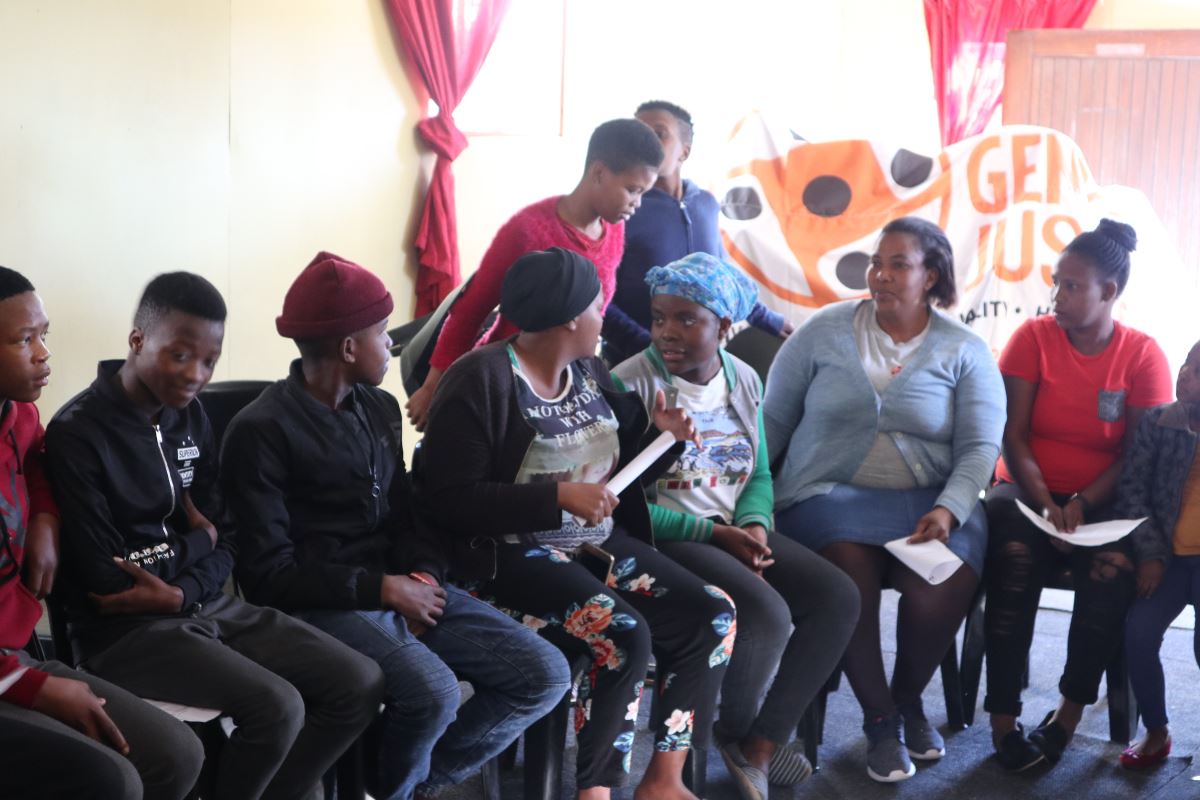“Women are being bullied by their husbands. Women are being raped, even when they are going to work. I think, the government must [invest in visible policing] and educate people about [these things]. They must arrest people who are [raping women],” said 18-year old Chantel Njerere.
Chantel is one of several adolescence that attended a Youth Day dialogue hosted by Sonke Gender Justice on 16 June 2019 in Wallacedene, Kraaifontein.
Youth Day honours the deaths of many Soweto schoolchildren who were gunned down in 1976 for protesting against “Bantu” education. The brave activism of many, such as Hector Peterson who was shot during protest action, changed the course of South African history.
In Wallacedene, residents, social activists, and local officials came together, not only to honour the sacrifices made by youth in 1976, but to also highlight the issues that adolescence still face in combating gender-based violence, accesses to education and service delivery. The event formed part of Sonke Gender Justice’s work on holding local duty bearers accountable.
Of the many issues discussed in the youth dialogue, drug abuse, increasing levels of crime, rape and spousal abuse were mentioned as reoccurring issues affecting the Wallacedene community.
Residents also had the opportunity to interact with the Ward Counsellor and Police. Ward 6 Counsellor, Simpiwe Nonkeyizana, said that the greatest challenge preventing local government from providing adequate aid to the community is a lack of resources. The nearest police station is located several kilometers away from the township and is not easily accessible.
According to Kraaifontein Police Sergeant Baxolele Mngwaz, Wallacedene is listed as one of the most dangerous areas in South Africa, with not enough police officers to respond to incidents of crime.
In contrast to the Sergeant’s statement, many local youths expressed that the main issue does not lay in a lack of police presence, but rather a lack of police action.
“I’m not going to lie, the police are aware of what is going on here,” said Wallacedene resident, Pumezo Sihoti. “They know who is selling and who is doing what here, but they never arrest those people. I would like the police to be more involved in the community. They just drive around here. What I would like is for the police to be more in the community,” he continued.
The Ward Counsellor mentioned the recent implementation of a neighborhood watch program to work in tandem with the police. A temporary police station was also established within the township, which led to a “visible reduction” in crime rates, according to Nonkeyizana.
However, after just three months, the station was relocated to another high-crime area as per the police station commander’s request. Despite this, the Ward Counsellor hopes that the several million rand allocated for fighting crime in the next fiscal year will benefit the community.
“For now, I cannot say the city has done sufficient in fighting the crime; it is just a rhetoric. But we are still hopeful,” he said.








